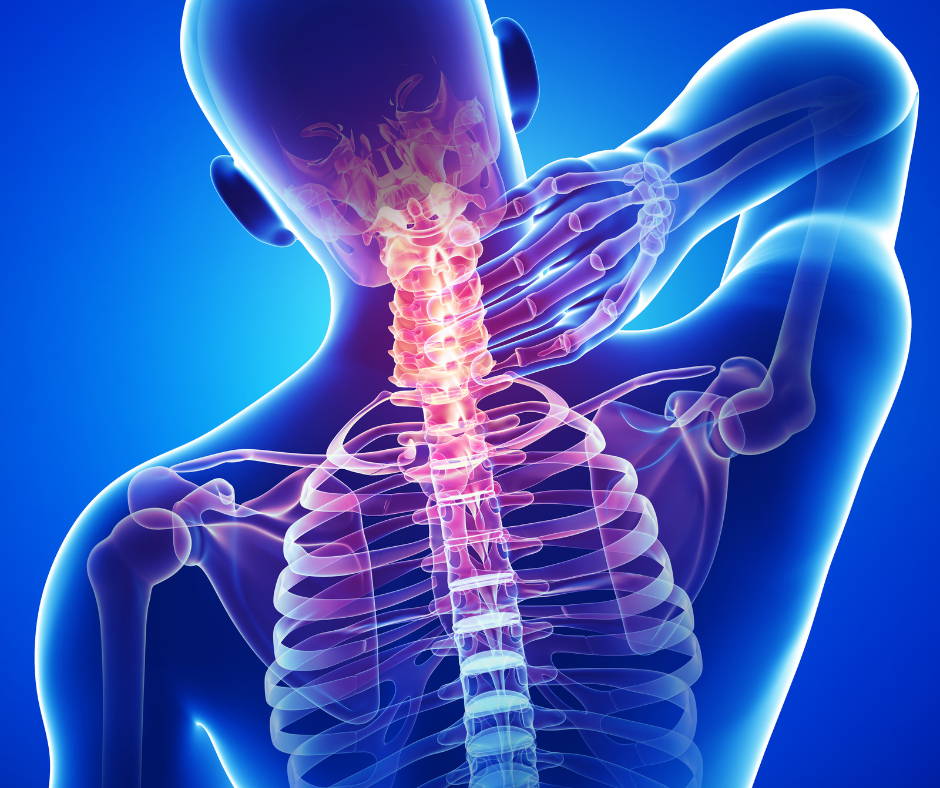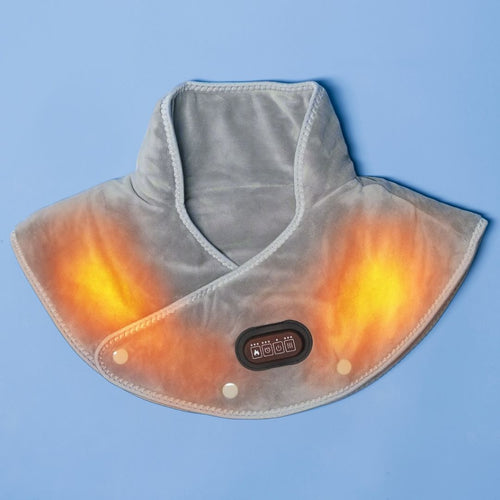Can Neck Pain Be a Sign of Something Serious? Here’s How to Tell
By Holly Grace Callis | Published on August 4th, 2025

You’ve had neck pain for a few days or maybe longer. It’s sore when you wake up, tight by afternoon, and keeps coming back even after you rest. At some point, you start to ask yourself: Is this still just tension, or could it be something more serious?
Most neck pain comes from muscle tightness or poor posture and gets better on its own. But there are signs that can point to something deeper, like nerve compression or infection. Knowing what to watch for helps you respond early and avoid bigger problems down the line.
In this blog, we’ll cover when and when not to worry about neck pain, what to do about it, and steps you can take to find relief early on.
When Neck Pain Is Usually Nothing to Worry About
In most cases, neck pain is linked to how you sit, move, or sleep. The muscles in your neck and shoulders respond to stress, poor posture, and long hours at a desk or on a screen.
This type of pain usually:
-Feels like stiffness or soreness
-Improves with movement, stretching, or rest
-Comes and goes depending on your activity level
These symptoms are common and tend to respond well to posture correction, mobility work, and better sleep positioning.
Signs That Neck Pain Could Be Something More Serious
Neck pain is often harmless, but certain signs suggest a more serious cause. These symptoms may involve nerve compression, inflammation, or other conditions that need medical evaluation.
Here are serious stymps to keep an eye out for:
1. Numbness or Tingling in Arms or Hands
This can happen when nerves in your cervical spine are compressed or irritated. It may feel like pins and needles, especially in your fingers or forearms. Persistent numbness is a sign to consult a doctor.
2. Weakness in Limbs or Coordination Issues
Muscle weakness, clumsiness, or difficulty with balance may point to spinal cord involvement. These symptoms suggest that nerve signals are being disrupted, which requires medical attention.
3. Pain That Radiates Down the Arm or into the Shoulder
If your neck pain spreads into one arm or shoulder, it may be due to cervical radiculopathy. This condition occurs when a nerve root is compressed, often by a herniated disc or bone spur.
4. Headaches with Vision Changes or Dizziness
Severe headaches along with blurred vision, sensitivity to light, or dizziness may indicate vascular or neurological issues. These symptoms should not be ignored.
5. Fever, Fatigue, or Unexplained Weight Loss
If neck pain comes with systemic symptoms like fever, low energy, or weight loss, it could signal an infection, inflammatory disease, or even a tumor. These symptoms require a full medical evaluation.
What Causes Serious Neck Pain? (And What’s Less Serious)

Neck pain can come from many different causes. Some are mild and easy to treat, while others may be more serious and need medical care. Understanding the difference helps you know what to do next.
Structural Causes
These are problems with the bones, discs, or joints in your neck:
-Herniated discs can press on nerves and cause pain or numbness.
-Spinal stenosis is when the space around the spinal cord becomes too small.
-Cervical arthritis is joint wear and tear that can cause stiffness or swelling.
These issues build up slowly over time and can lead to pain, stiffness, or nerve symptoms. Many of these conditions are common as people get older, but they can also happen after injury or long-term poor posture.
Red-Flag Causes
These are rare but more serious. They include:
-Meningitis causes swelling around the brain and spine.
-Tumors in or near the neck.
-Vascular problems, such as a torn artery in the neck, can affect blood flow.
These often come with other symptoms like fever, confusion, or sudden pain. If you have any of these, get checked right away.
Common but Non-Urgent Causes
Most neck pain comes from small habits or everyday activities. These causes are not dangerous and often improve with posture support, rest, and sleep changes. If your pain is mild and goes away on its own, it's likely from one of these common sources:
-Muscle strain from bad posture or sleeping wrong
-Tech neck from looking down at screens too much
-Poor sleep position without enough support
These causes usually improve with simple changes to your routine.
Using a pillow that supports your neck, like the Thera Pillow,can help ease pain while you sleep.

What to Do If You’re Concerned
If your neck pain is lasting longer than usual or feels different than normal soreness, it’s a good idea to take a closer look. You can start by tracking your symptoms and trying a few things at home. But if the pain does not improve, talk to a doctor.
Step 1: Track Your Symptoms
Write down when the pain started, what makes it better or worse, and if you notice any other symptoms like numbness or headaches. This can help you and your doctor find the cause faster.
Step 2: Try At-Home Relief First
For most mild pain, you can start with simple changes. Use a supportive pillow to keep your neck in the right position while you sleep. You can also try a warm compress, gentle stretches to relax tight muscles, and mind-body connection exercises.
Step 3: Know When to See a Doctor
If your pain lasts more than a week or gets worse, it’s time to get checked. You should also see a doctor if you feel weakness, numbness, or dizziness, or if you have a fever or trouble thinking clearly.
Take Action Early Before It Gets Worse
Most neck pain is not serious and can be managed with small changes to how you move, sleep, and support your spine. But when symptoms feel different or don’t go away, it’s important to take them seriously.
Start with simple steps like using a supportive pillow, applying heat, and tracking what makes the pain better or worse. If the pain doesn’t improve or comes with other warning signs, talk to a doctor.
Support your neck daily with Callixe’s neck pain relief products. Our products are specifically designed to help you feel better naturally and rest with proper alignment.
FAQs About Serious Neck Pain
What illness starts with neck pain?
Some illnesses begin with neck pain as an early symptom. Meningitis, rheumatoid arthritis, and certain viral infections can cause neck stiffness or discomfort. If neck pain happens with fever, tiredness, or sensitivity to light, you should see a doctor right away.
Is neck pain a warning sign?
It can be. While most neck pain is caused by things like poor posture or muscle tension, it can also signal something more serious. If the pain comes with numbness, weakness, vision changes, or does not go away, it may be a warning that needs medical attention.
Is neck pain an early sign of stroke?
In rare cases, yes. A type of stroke called vertebral artery dissection can start with sudden, sharp neck pain. This is more serious if the pain happens with dizziness, blurred vision, or trouble speaking. If you feel any of these signs, call a doctor right away.
What is Fay syndrome?
Fay syndrome is a very rare nerve condition that causes pain in both the neck and face. It is linked to irritation of nerves in the upper neck and head. This condition needs a specialist to diagnose and treat, but it is extremely uncommon.










